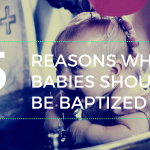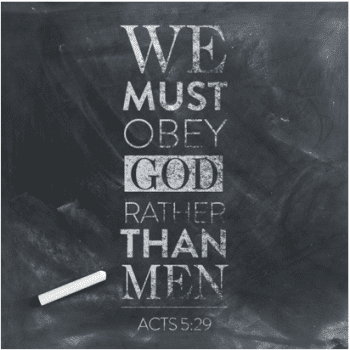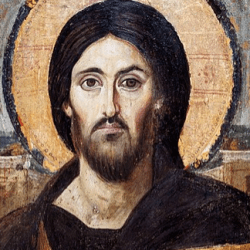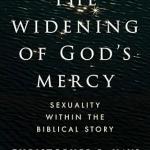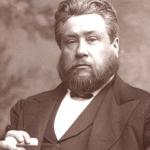
God brings His Kingdom in Jesus Christ, so what is His attitude regarding earthly nations, or, “ethnos” (from where we get the word “ethnic”)?[i] Just what should the Christian think about a phenomenon that appears to be rapidly emerging once again: nationalism?

This week, Albert Mohler devoted almost a whole show to stories related to the topic[ii], where he argued that in Europe there are “two forms of nationalism” – one healthy, concerned with matters of subsidiarity, and one unhealthy, “often reduced to a form of racism.” And when it comes to our own American context and concerns about movements on the increasingly “non-religious” political right (note Ross Douthat), look at what Pastor Todd Wilken tweeted out a little over a year ago:

At the time, I responded to Pastor Wilken’s tweet with some mild pushback, including the words “Just seems to me like all sense of proportion is lost with stuff like that” (he disagreed). A week later I followed up with a tweet (not only responding to Pastor Wilken!) that he also took issue with: “Anti-Trump postings & articles I see increasingly seem less measured/honest & more hysterical/overstated. Doesn’t serve #NeverTrump well.”
In any case, with the recent failure to pass the Republican’s health care bill, Dilbert creator and cultural guru Scott Adams contends that the media Narrative about Trump has now changed: he is not Hitler, but incompetent.

Even if it is the case that we will now hear less of the Trump/Hitler comparison, it is, of course, still informative to think about nationalism – and the response of faithful German Christians to it as it occurred in their homeland in the 1930s.
First of all though, we should take a look at what the Bible has to say.
Paul says that God’s “purpose was to create in himself one new humanity out of the two.” Is this not why the early Christian apologist Aristides said that Christians were now a “Third Race,” set apart from both [unbelieving] Jews and Greeks?[iii] (apologia 2). This is the core thing that we as Christians want to communicate: the newness that we all have in Christ.

And of course, even in heaven, we evidently will not lose the ethnic diversity that is a part and parcel of the traditional notion of nations (again, “ethnos”) – and which evidently emerged after the fall and the tower of Babel. For Revelation 7:9 gives us this amazing picture:
“After this I looked, and there before me was a great multitude that no one could count, from every nation, tribe, people and language, standing before the throne and before the Lamb. They were wearing white robes and were holding palm branches in their hands.”
Therefore, while uniting all persons in Christ, Christianity, counter the Left, also gives us a favorable picture of what we call ethnicity – a term that has both culture and family ties in mind. The fact that mothers have a natural inclination – and equipment – to nurture their young[iv], that we might speak of our “fatherland,” and that “Nature produces a special love of offspring” (Cicero) – these are all good things. The cultural Marxist Left, on the other hand, hates the natural family – and hence nations[v] – for the same reasons it hates marriage: these are living icons of the church.

I had in mind these kinds of things when I declared some months ago that I was, in a sense, embracing identity politics and labeling myself a “Liberal Christian Nationalist” (yes, I know that sounded frightening to some people).

With this said though, I wondered how this view would stack up vis a vis the response of Dietrich Bonhoeffer and the other Christians who penned the Bethel Confession in the 1930s. As we take a look, keep in mind that it was written to help the church theologically counter Hitler’s efforts to appropriate the church for his own racial program (the Bethel Confession never gained wide acceptance and the Barmen Declaration become the document of choice for most who resisted ; you can read more about the Bethel Confession in Lowell Green’s book Lutherans Against Hitler: the Untold Story)
 According to the Bethel Confession:
According to the Bethel Confession:
- Jesus is “a member of the Israelite nation from the family of David…. All nations and races, also the noblest ones, are also guilty of his death and daily become guilty of it anew, when they insult the Spirit of grace (Hebr. 10:29).”
- “God chose Israel to be his people among all the nations of the earth. He did this only in the power of his word and for the sake of his mercy, by no means for the sake of some natural prerogative (Ex. 19:5-6; Deut. 7:7-11).”
- “Struggle is not the basic principle of the original creation, and a fighting attitude is therefore not a commandment by God established by the original creation.”
- Christians “must reject all attempts to place the natural phenomenon of race on the same level as the institutional orders that are grounded in a direct divine commandment to man.”
- “God’s Holy Spirit alone works faith in man. He alone creates the fellowship of confessing rightly. The fellowship of such confessing is never coextensive with the boundaries of a certain ethnicity.”
- “We oppose the teaching that it belongs to the essence of the church to be a national church [“Volkskirche”]. The church is free to be national church, so long as this form is a means to carry out its commission.”
- The church can live even where there is no nation, for “where two or three are gathered in my name, there I am in the midst of them” [Matt. 18:20].[vi]
In a core passage, we read that the church rejects the view that “the church is the religious organization of one nation,” and that “it should give religious support to ethnicity; that the boundaries of the church and the nation should be identical (religious nationalism).” (italics in B.C.)

I think we should be masters of [all] our identities and not let them master us.” — Kwame Anthony Appiah (listen here)
The role of the government, of the fatherland, of the nation, on the one hand, is ultimately to bear the sword to punish the evildoer and enact justice. This is not the proper role of the church, and therefore, “[we] reject the false doctrine of a ‘Christian state’ in every form.”
On the other hand, the realm of the church is to share God’s forgiveness in Christ through the means of grace, His Word, come to us in the Scriptures, and His sacraments.

A longer section goes into some great detail providing guidance as this regards the church vis a vis diverse ethnic groups and “nations” that are held together more by force than culture. There is much nuance here, and so I quote in full not to miss any of it:
Christ is sent as the Redeemer of the whole world. This is why he commissions the church to bring the gospel to all nations. As it carries out this commission, it enters into the forms and structures of the nations of their time. It can live among a multitude of nations as the one church regardless of political boundaries. It can be a national church within the boundaries of a realm regardless of ethnicity. It can be church within a certain ethnicity while transcending political boundaries. It can be church within a certain ethnicity without transcending political boundaries, but within the boundaries of this ethnicity. Its external form is not subject to duress, but is determined by the only rule, namely, “by all means to gain some” [1 Cor. 9:22]. This is why it becomes a Jew to the Jews, a Greek to the Greeks, a Chinese to the Chinese, a German to the Germans. The manner and extent of such entering into time can be determined only based on the commission of the church. The proclamation of the church always remains the alien grain of seed that is planted in the ground. Where the content of a specific time becomes the content of the proclamation the gospel is betrayed, because it is no longer said to the time, but absorbed by it….
We reject the false doctrine that the church belongs to the nation, or that it is there for the nation. The church does not belong to the nation, but to Christ. He alone is its Lord. Only in intrepid obedience to him it truly serves the nation in which it lives. It is there for every member of the nation, to gain it for the congregation of Jesus (italics in actual document).
All, in all, after reading the Bethel Confession, I find myself saying “Amen!” and marveling at its confession of Christ and His Church. I come to the conclusion that it is indeed fully compatible with my thoughts about Christianity and nationalism.
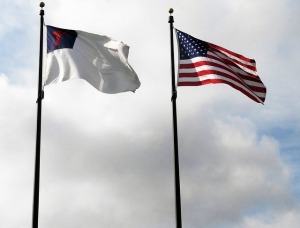
One more very interesting thing. Taking a turn that would be considered very politically incorrect this day, the Bethel Confession also says the following:
No cultural or political considerations can liberate the church from the duty to call Israel to repentance and to baptism. Just as little can the Gentile Christians separate themselves from the Christians out of the nation of Israel. Their fellowship in word and sacrament is the sign for the fact that the church of Jesus Christ is the heir of Abraham’s promise. This is why the church must resist every secularization of the mission to the Jews which views the reception into the Christian church only the sign of the reception of the Jews into Western civilization.[vii]
This brings me to my closing thoughts.
As best I can tell, the rise of Nazism, a race-based ideology, was more theological than anything else. Hitler’s desire was not only to destroy the Jews, but eventually, Christianity as well. In sum, those who the Bible says were God’s chosen people by grace were to be replaced by the race that Nature had chosen. Its winners.
Most all of us are rightly horrified by the thought (though listen to this). Now without losing any of that horror, listen to the popular novelist Andrew Klavan, who says the following about his own conversion from Judaism to Christianity:
The Holocaust was the crucifixion compulsively reenacted on a grand scale: an attempt to kill God’s people in order to extinguish the Light of the World that shows us who we are…There are some people who say that an evil as great as the Holocaust is proof there is no God. But I would say the opposite. The very fact that it is so great an evil, so great that it defies any materialist explanation, implies a spiritual and moral framework that requires God’s existence. More than that. The Holocaust was an evil that only makes sense if the Bible is true, if there is a God, if the Jews are his people, and if we would rather kill him and them than truly know him, and ourselves. (Chapter 12, emphasis his, The Great Good Thing)
Worth pondering? I think so.[viii] God cares deeply about all people, all nations – even if here we need eyes of faith to see. His love is why in Christ He unites Himself together with us, first as regards the Jews, and then as regards the Gentiles – and promises them that in Him, we are a part of the family that will never perish.

FIN
Images: Right wing parties in Europe ( Creative Commons Attribution-Share Alike 3.0 Unported license) ; Al Mohler, James Thompson, Flickr, CC BY 2.0; Donald Trump Arizona, by CC BY-SA 2.0 ; Aristides public domain ; Kwame Anthony Appiah, by David Shankbone, CC BY-SA 3.0 ; Christian flag from Pixabay (free use).
Notes:
[i] As will be seen below the biblical idea of “nation” has more in common with the idea of “people” or “people group” than it does “country with borders” or modern “nation-state”. That said, during the era of Romanticism there was in Europe, starting in Germany (and here with strong anti-semitic overtones and undercurrents), a strong backlash against the universalistic project of the Enlightenment. It would no doubt also be a good idea to explore further just how the notion of “people” and “nation” we find in the bible may have shifted in meaning during the last few centuries.
[ii] Relatedly, he also spoke about the secularization of Europe, where Christianity is seen as an embarrassment, evidenced by efforts to expunge Christianity from the record of how Europe came to be.
[iii] Biblically, earthly nations are inseparable from the concept of “ethnos,” from which we get “ethnicity”. In like fashion “genos”, from where we get “genes,” can be translated as offspring, family, race, nation, kind, or even sex. We see that both of these terms involve notions of blood and parentage, even if “ethnos” is more closely connected than “genos” with our notions of culture.
Christians are first and foremost citizens of heaven, not earth. In, but not of the world, their “dual ethnicity” means that they belong first to the kingdom of heaven, and are members of “God’s chosen ethnos” (I Peter 2:9). Though all are one “in Adam,” God has, post-fall, also ordained a diversity of nations (see Acts 17:26), from whom He will obtain worship (Rev. 7:9). Ultimately, the Church is a new Nation that re-unites, by faith in Christ, persons not just from this or that race, tribe, or nation, but from the entire human family – making one Nation, or more accurately, Kingdom.
[iv] For more along these lines, see my satirical article here.
[v] Note that Karl Marx was in favor of free trade, largely because of the effects he said it would have on families and nations. Ideological forms of capitalism do not get a pass here either (see this from Chesterton). Steve Keen’s work, Debunking Economics, is worth noting here.
[vi] Also from the Bethel Confession: “We reject the false doctrine that the existence of the nation is presupposition for the existence of the church, or that the existence of the church is presupposition for the life of a nation….
A nation can live and have a grand history, even where there is no church. Nations live within the natural world and have incurred the law of death that reigns over all creation. This is why a nation as a whole cannot be redeemed, for redemption is always God’s act upon an individual. However, the church, grateful to God, always lays hold of the assistance offered to it in the ethnicity or other natural orders for the execution of its commission.”
[vii] I think what the Jewish conservative writer Ben Shapiro says here really does not evince the proper kind of nuance:
“For folks who don’t know what the alt-right is, it might be worthwhile to just sort of start at the beginning and talk about what the alt-right is—because there are a lot of these various definitions floating around, nearly all of which are wrong.
Basically, the alt-right is a group of thinkers who believe that Western civilization is inseparable from European ethnicity—which is racist, obviously. It’s people who believe that if Western civilization were to take in too many people of different colors and different ethnicities and different religions, then that would necessarily involve the interior collapse of Western civilization. As you may notice, this has nothing to do with the Constitution. It has nothing to do with the Declaration of Independence. It has nothing to do actually with Western civilization. The whole principle of Western civilization is that anybody can involve himself or herself in civilized values. That’s not what the alt-right believes—at least its leading thinkers, people like Richard Spencer and Jared Taylor and Vox Day. Those kind of folks will openly acknowledge that this is their thought process.”
I do not believe that the beliefs and moral values, influenced by Christianity, that many civilizations have are “inseparable from European ethnicity”. On the other hand, we do call Western civilization “western” for a reason (and some have argued that this simply became an appropriate way [code!] of talking about Christianity in recent years… whereas “Christendom” was the term that said much the same thing before that), and I do not think that the beliefs and values they possess—even though they are not necessarily tied with ethnicity—are easily transferable or guaranteed transferable in any sense (hence appropriate and measured concern about immigration issues). Finally, of course, I also think that ethnicity needs to be distinguished from ideas of biological race (see note 3 above).
[viii] Please note that in favorably quoting Klavan I am not saying that those who do not trust in Jesus Christ will be saved (nor do I believe he is saying this).

